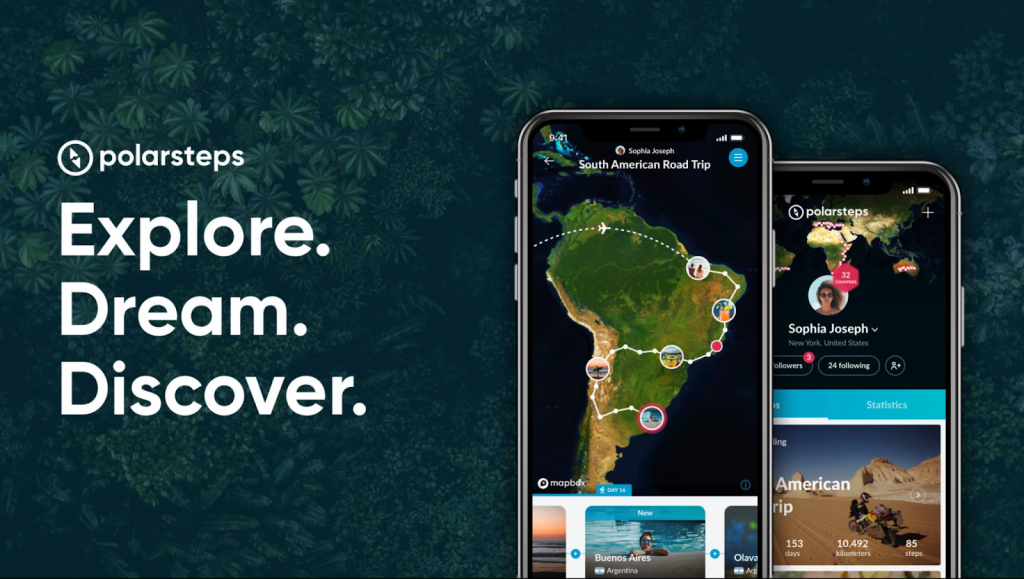The travel industry has always been quick to adopt new technologies that improves operational aspects or elevates traveler experiences. The household adoption of the internet way back when created a new frontier for travel research, purchasing and marketing. A TravelPerk article from December 2024 indicated that over 850 million people used a mobile travel app to research and plan travel in 2023. Recent innovations in AI may have sparked a 2nd technical revolution in travel. That same article reported that 62% of Gen Z travelers used AI technology to save money on travel purchases. The evolution of online travel continues as new ways to search and research travel are emerging, aiming to elevate client experiences and knowledge while positively influencing purchasing decisions. Highlighting 3 trends in travel search methods, travel consumers now have more ways and channels to acquire the information they seek.

The Power of Visualization
Visual searching, or image searching is a rapidly growing trend and Google’s own Lens application entertains over 20 billion requests per month. The rapid evolution of AI and machine learning has taken image identification to the next level and systems can now approximate geographic location or make recommendations based on topographical content. Users that see an image that causes a positive reaction search for relevant travel information by simply clicking an image. Automation processes can recommend or ‘pitch’ travel products and services that relate to the requested destination. Visual searching is a perfect companion to travel research and purchasing as both have strong connections to emotional responses and are highly preference based. For travel brands, visual searching can be another marketing avenue as searches of this type continue to ramp up.
Next Generation Travel Planning and Research
AI technology is set to revolutionize the travel industry and has seen rapid implementation and adoption in customer facing technologies. The high level of interaction and engagement with AI technology has shown practical application in travel research, planning and purchasing. Using simple voice or typed commands, travel consumers can request specifics or general recommendations as well as confirm booking and pay for their travel during a single interaction with the AI assistant. Use of AI assistants in travel has exploded among certain generations and many large online travel agents, such as Expedia and Kayak, have incorporated AI interfaces to provide concierge-like services to travel consumers. With today’s innovations, searching and researching travel can be as easy as having a conversation or typing a few requests in any diction. AI can automate many tasks and processes that offer real conveniences and benefits to travel shoppers, positively influencing any potential purchasing decisions.
Immersive Travel Marketing
Virtual reality technology has seen wide adoption in gaming circles but is slowly making inroads into online shopping and other daily tasks. Researching and purchasing travel can benefit from these immersive technologies and consumers are starting to browse destinations and travel options through VR headsets. Expansive, 360 degree views and crystal clear imagery and video takes travel researching and marketing to the next level as user experience travel products and services, first hand. With over 77 million VR headsets in use in the United States alone, adoption of the technology moves forward and is proving viable as a travel marketing tool. As VR searching for travel continues to grow, travel businesses can convert existing media to VR formatting or create new material exclusively for VR users.
Innovations in Travel Engagement
Marketing travel products is a highly engaging process and modern technologies amplify the effects with the aim of positively influencing purchasing decisions. Glossy travel brochures were once the norm decades ago but digital and immersive technologies have elevated travel research, creating faster opportunities for positive purchasing decisions. Assistive technology such as AI powered assistance have proven practical as more users turn to these services to research, plan and purchase travel. VR technology takes travel marketing the next level with its high level of immersive capabilities. Looking forward, travel businesses must embrace technology as the industry has always been quick to adopt the latest consumer facing or operational innovation in constant effort to elevate traveler experiences.

